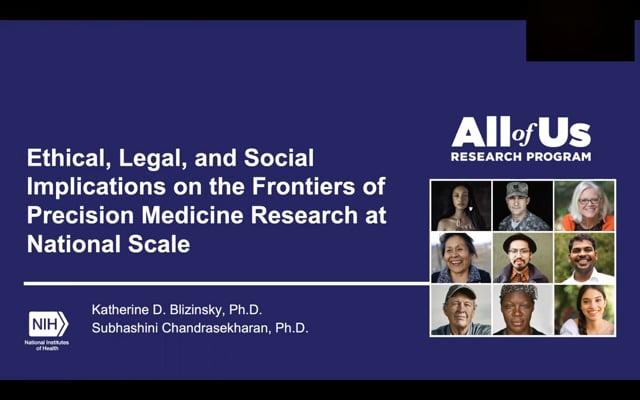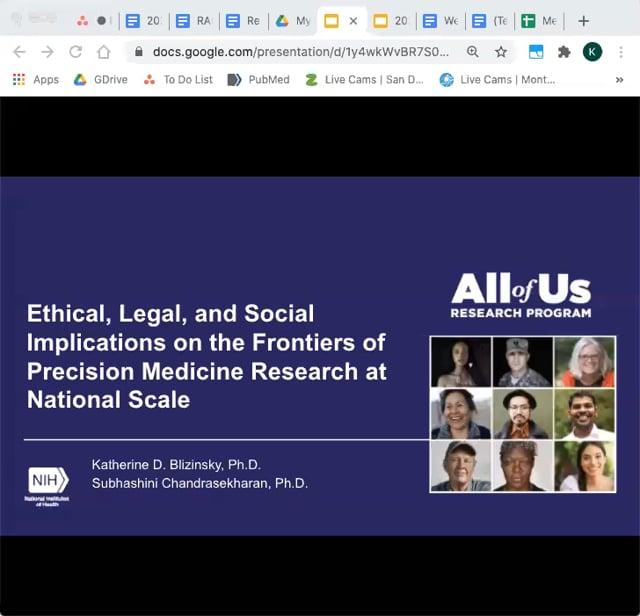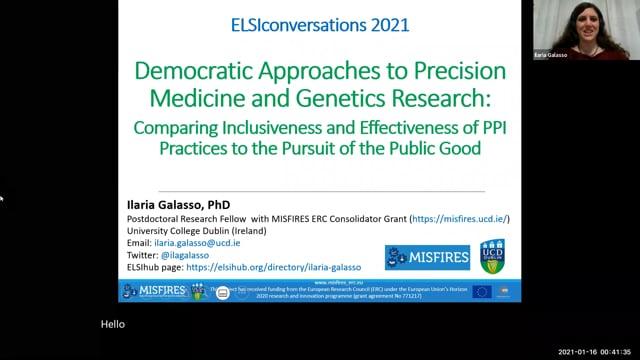Which Public, What Comments? An Analysis of Public Comments on Human-Animal Chimera Research Submitted to the National Institutes of Health
Ben Wills - The Hastings Center
ELSIconversations - March 19, 2021
Background: In 2016, the National Institutes of Health (NIH) solicited public comments regarding a proposal to cease funding certain human-animal chimera research. The NIH proposed expanding existing funding prohibitions to include research that a) breeds animals where human cells could contribute to the germline, or b) introduces human pluripotent stem cells into pre-blastocyst non-human primate embryos. Comments were also solicited about the types of research a proposed steering committee should guide, including research where human cells could substantially contribute to or functionally modify an animal’s brain.
Objectives: We sought to identify the issues and concerns commenters raised about human-animal chimera research and the degree to which they engaged with the proposed rule changes.
Methods: We undertook an inductive-deductive content analysis of a random sample (N=2,126) of 21,263 comments. Findings The vast majority of comments strongly opposed human-animal chimera research writ large, without referring to the proposed rule changes. They voiced concerns about the use of human embryos, taxpayer funding of objectionable research, species boundaries, scientific hubris, and animal welfare, among others. Many largely-identical letters suggested an organized submission campaign.
Conclusion: The NIH’s highly technical call for public comment may have contributed to confusion about the agency’s proposal, influencing who responded and the concerns that arose. To achieve broader public input, policy proposals should be written for a lay audience and mechanisms for input should be made more accessible. We compare this process to the UK’s Human Fertilisation and Embryology Authority consultation process on chimeras to suggest alternate approaches.
Tags
Videos in Series
-
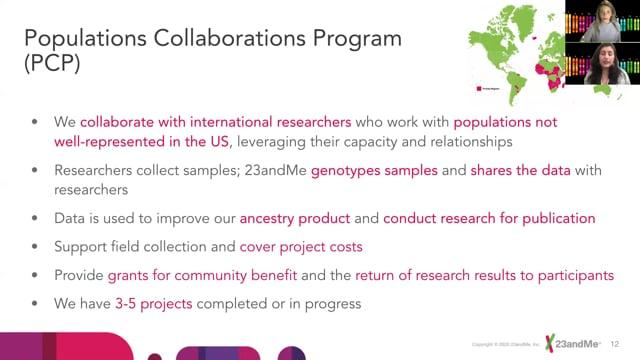
ELSIconversations 1: ELSIcon2020 - A Prospectus on Ethical Issues in the Context of Collaborations Between Academic and Non-academic Institutions on Genetics Research
-
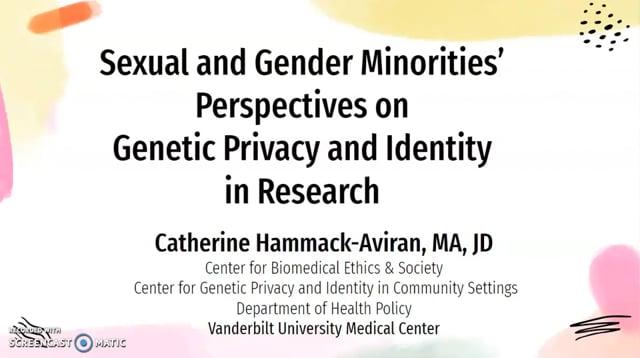
ELSIconversations 1: ELSIcon2020 - Sexual and Gender Minorities’ Perspectives on Genetic Privacy and Identity in Research
-
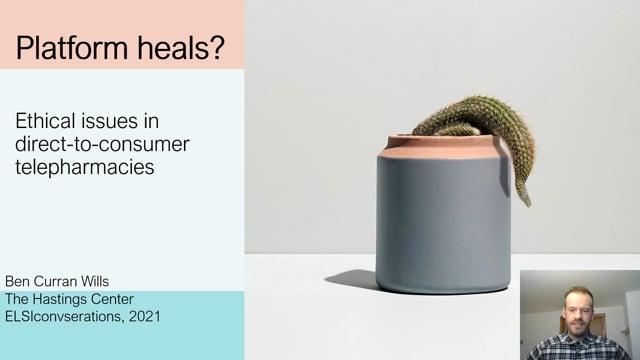
ELSIconversations 1: ELSIcon2020 - Platform Heals? Ethical Issues in Direct-to-consumer Telepharmacies
-
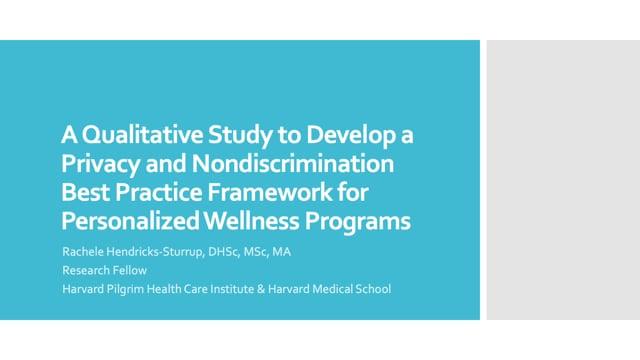
ELSIconversations 1: ELSIcon2020 - A Qualitative Study to Develop a Privacy and Nondiscrimination Best Practice Framework for Personalized Wellness Programs
-
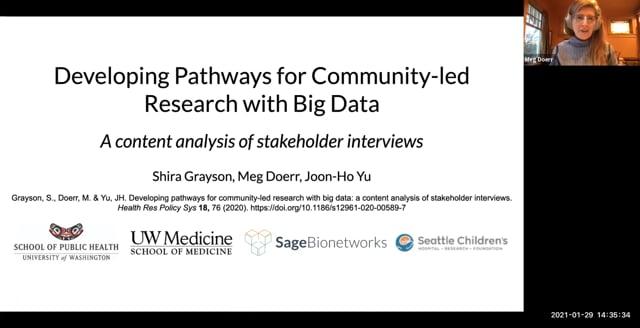
ELSIconversations 1: ELSIcon2020 - Developing Pathways for Community-led Research with Big Data: A Content Analysis of Stakeholder Interviews
-
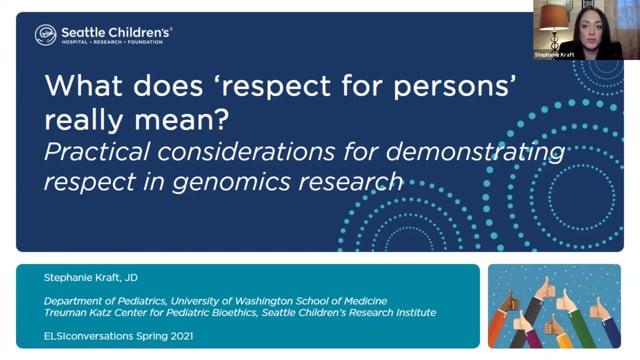
ELSIconversations 1: ELSIcon2020 - What does ‘respect for persons’ really mean? Practical considerations for demonstrating respect in genomics research
-
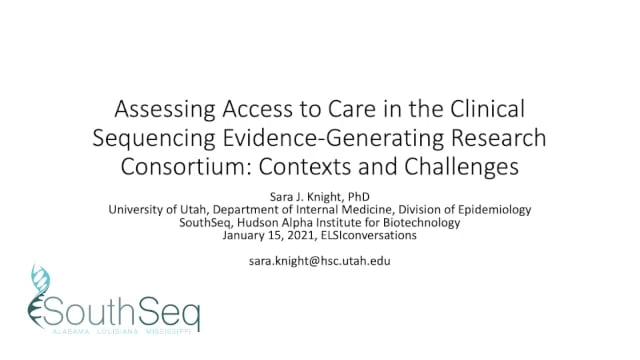
ELSIconversations 1: ELSIcon2020 - Part 4. Assessing Access to Care in the Clinical Sequencing Evidence-Generating Research Consortium: Contexts and Challenges
-
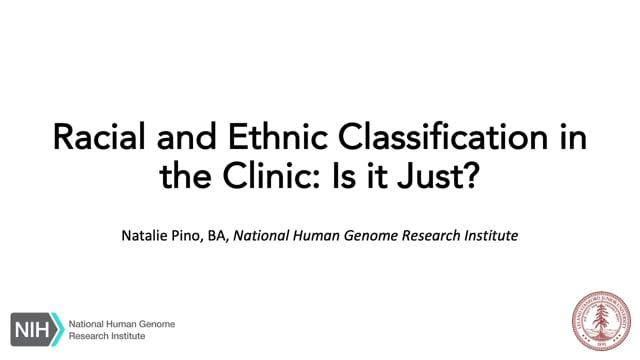
ELSIconversations 1: ELSIcon2020 - Racial and Ethnic Classification in the Clinic: Is it Just?
-
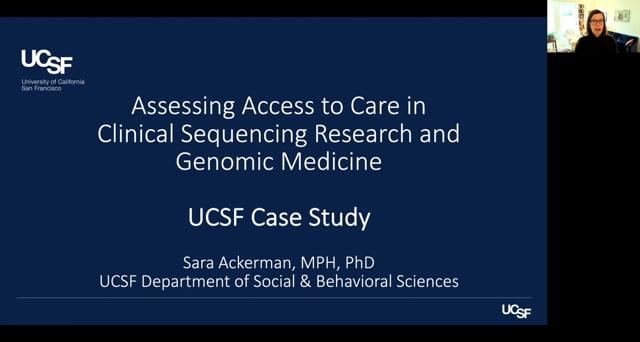
ELSIconversations 1: ELSIcon2020 - Part 3. Assessing Access to Care in the Clinical Sequencing Evidence-Generating Research Consortium: Contexts and Challenges
-
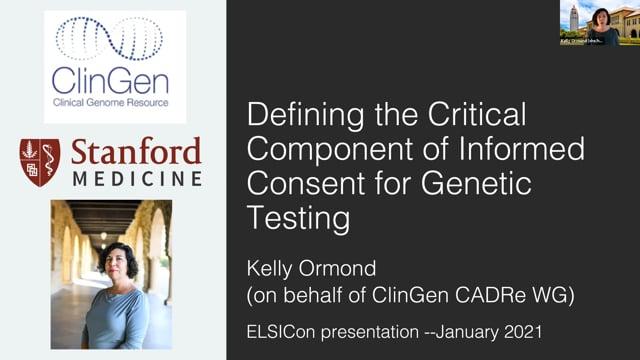
ELSIconversations 1: ELSIcon2020 - Defining the Critical Components of Informed Consent for Genetic Testing
-
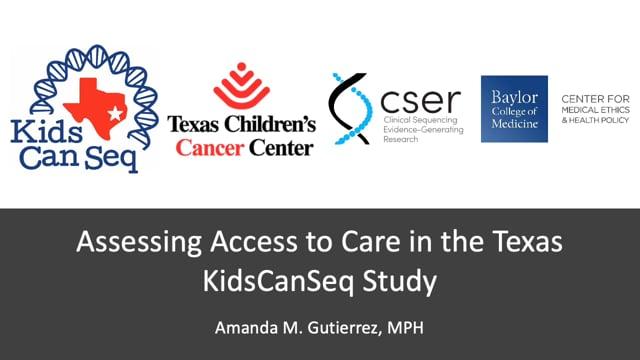
ELSIconversations 1: ELSIcon2020 - Part 2. Assessing Access to Care in the Clinical Sequencing Evidence-Generating Research Consortium: Contexts and Challenges
-
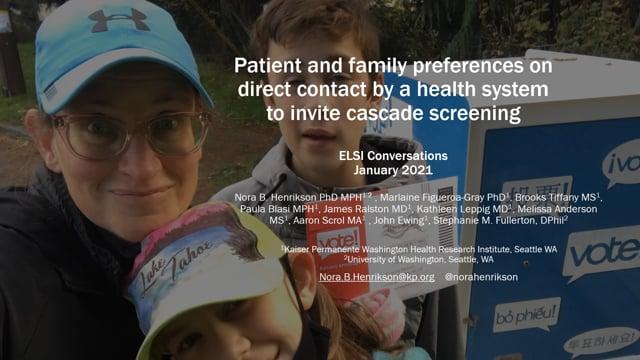
ELSIconversations 1: ELSIcon2020 - Patient and family preferences on direct contact by a health system to invite cascade screening
-
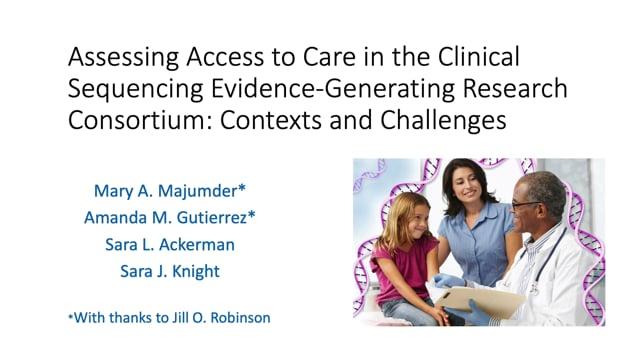
ELSIconversations 1: ELSIcon2020 - Part 1. Assessing Access to Care in the Clinical Sequencing Evidence-Generating Research Consortium: Contexts and Challenges
-
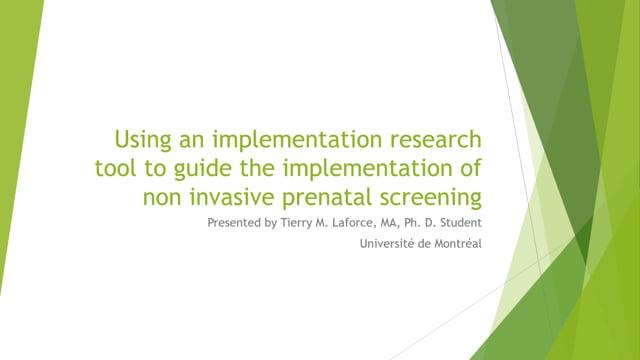
ELSIconversations 1: ELSIcon2020 - Using an implementation research tool to guide the implementation of non-invasive prenatal screening
-
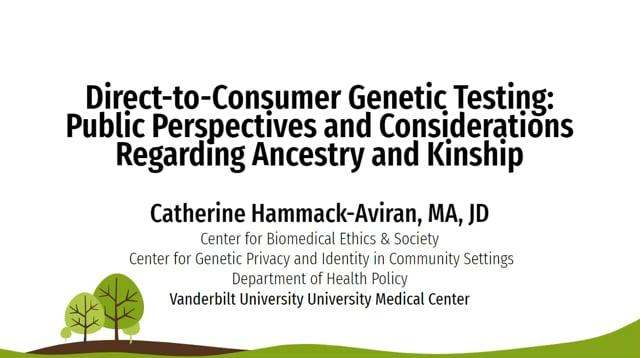
ELSIconversations 1: ELSIcon2020 - Direct-to-Consumer Genetic Testing: Public Perspectives and Considerations Regarding Ancestry and Kinship
-
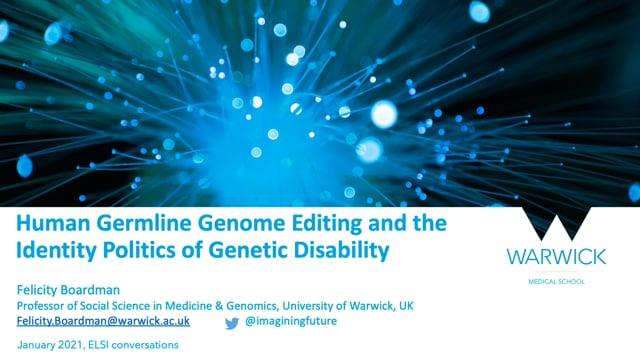
ELSIconversations 1: ELSIcon2020 - Human Germline Genome Editing and the Identity Politics of Genetic Disability

